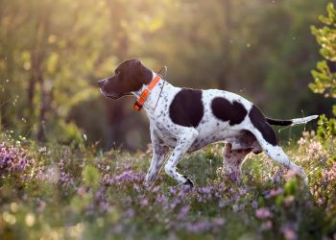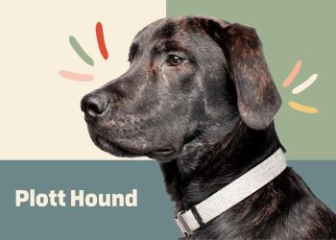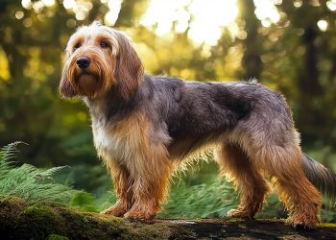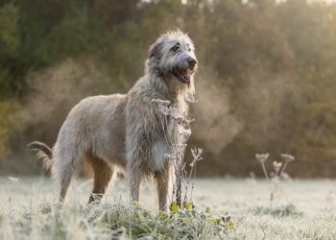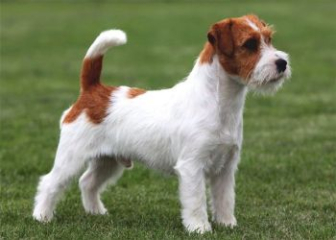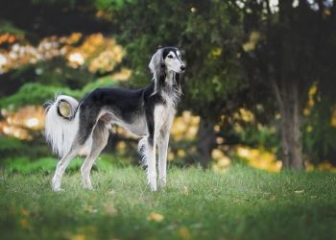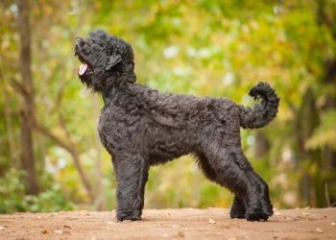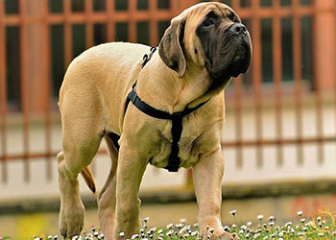Basset Hound - The Adorable Short-Legged, Long-Eared Hunting Dog
Blog | by
The Basset Hound, also known as the short-legged hunting dog, originates from France. Despite its small size, this dog has an exceptional sense of smell and moves swiftly.
The Basset Hound is a short-legged hunting breed from France, commonly raised for tracking scents and hunting small animals like rabbits and squirrels. To learn more about its origin, appearance, and how to properly care for this dog breed, check out the detailed article below!
Where Does the Basset Hound Come From?
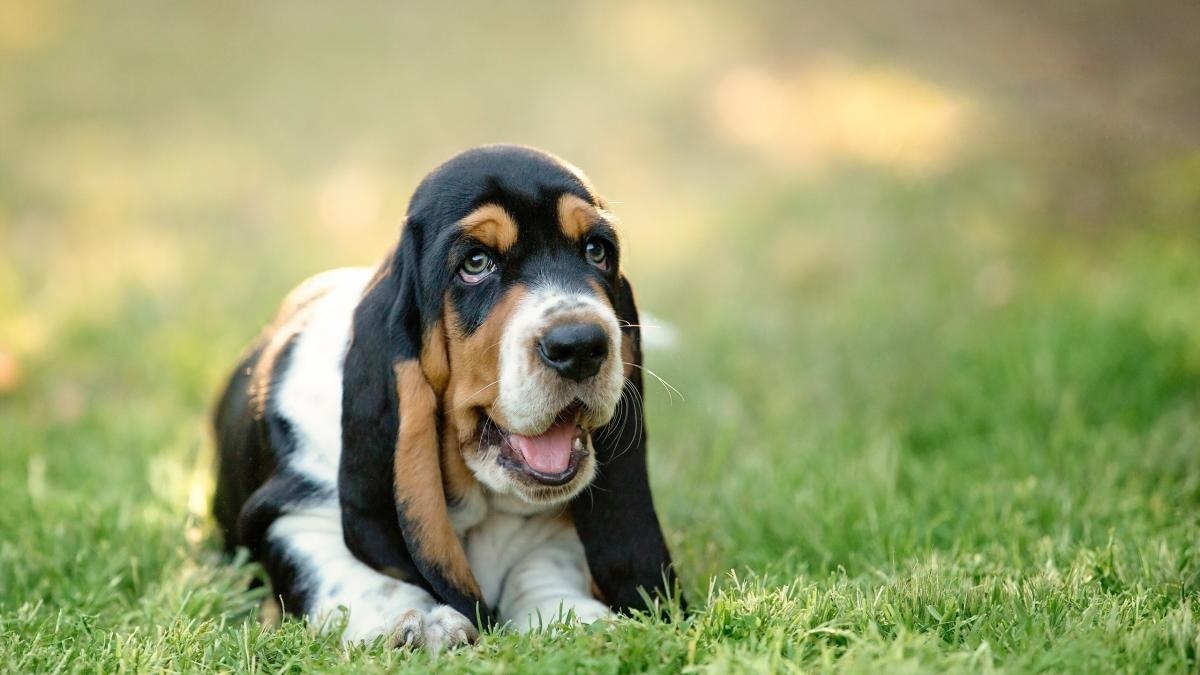
Basset Hound – The Short-Legged, Long-Eared Hunting Dog from France
The Basset Hound is a hunting dog that originates from France. This short-legged breed is known for its exceptional sense of smell, which it uses to track scents, alert hunters by barking, and hunt small prey such as rabbits, chickens, and other small animals. Despite its short legs, this breed impresses with its agility and swift movements.
The Basset Hound was bred from two dog breeds: the Bloodhound and a French hunting dog. Its average lifespan ranges from 11 to 12 years.
This breed gained popularity in the 19th century and is now found in most countries. It has become a beloved pet for many dog owners worldwide.
Physical Characteristics of the Short-Legged Basset Hound
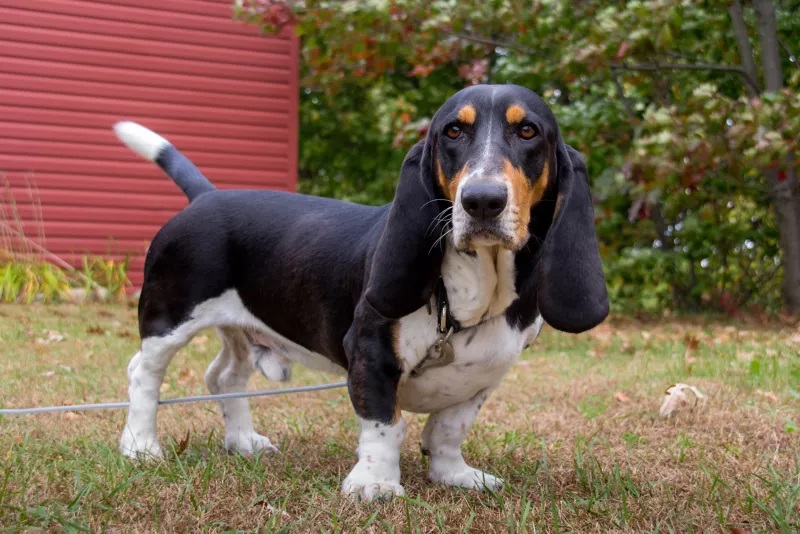
Basset Hound Has a Long Body, Short Legs, and Long Ears
The Basset Hound has a very distinctive appearance with its long body, short legs, and droopy, sad-looking face, which makes it quite adorable. Let’s explore more details about the physical traits of this unique breed below.
- Weight: Ranges from 20 to 34 kg
- Height: Between 30 - 38 cm
- Eyes: Large and droopy, giving a sad expression
- Ears: Soft, long, and hanging down over the face
- Coat: Short and smooth
- Coat Colors: White-brown-black, cream-white, red-brown-white
- Nose: Large and highly sensitive to scents
Personality of the Basset Hound
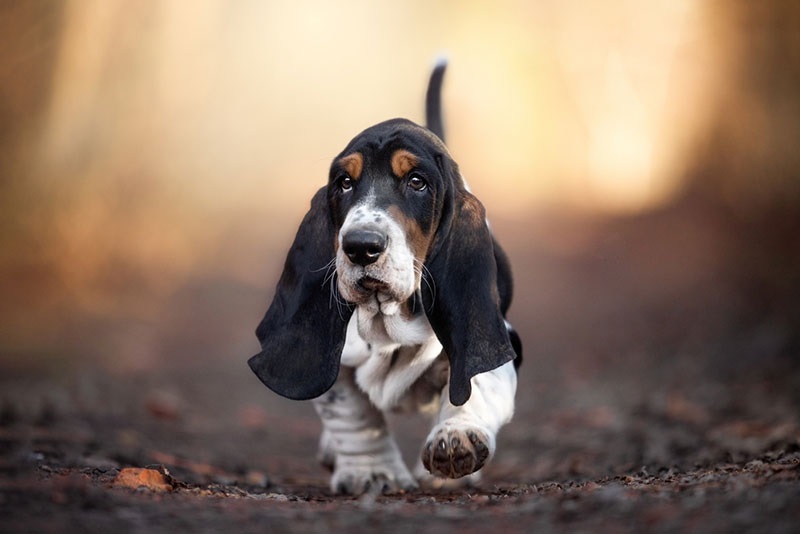
Basset Hound – Friendly and Intelligent
Aside from being a famous hunting dog, the Basset Hound is also loved for its gentle and easygoing personality. Some notable traits of this short-legged hound include:
- Intelligent but slightly lazy, so training requires patience. It’s best to start with simple exercises and gradually progress to more difficult ones with a structured training plan.
- Loyal and affectionate, which means they need love, attention, and interaction to avoid feeling lonely or isolated.
- Natural hunters, so they tend to wander off, sometimes getting lost while following a scent.
- Funny and mischievous, often displaying a playful personality.
- Friendly, gentle, and great with children, making them excellent family pets.
Suitable Diet for Basset Hounds
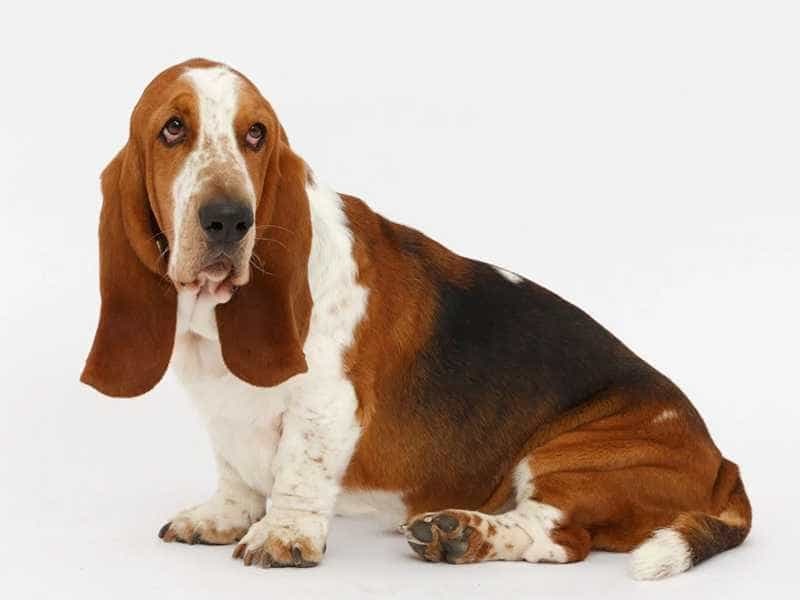
A Proper Diet for Basset Hounds
To keep a Basset Hound healthy and agile, you need to provide a suitable diet based on their age and nutritional needs. Here’s a detailed guide:
Nutritional Requirements
Experts recommend the following nutrient distribution for Basset Hounds:
- Protein: 20 - 25% of the diet
- Fat: 10 - 15% of the diet
- Carbohydrates & Fiber: 30 - 40% of the diet
- Vitamins & Essential Minerals: 10%
What Should and Shouldn’t Basset Hounds Eat?
We’ve compiled a list of suitable and unsuitable foods for Basset Hounds for your reference.
Good Foods for Basset Hounds
- Fresh meats like beef, chicken, and lamb
- Boiled eggs
- Sweet potatoes, pumpkin, leafy greens, and broccoli
- Fish oil rich in Omega-3
- Brown rice and oats
- High-quality kibble suitable for Basset Hounds
Foods to Avoid
- Cow’s milk (causes diarrhea)
- Fatty meats (risk of obesity)
- Highly seasoned foods (harmful to kidneys)
- Fried foods
Diet Plan for Basset Hounds by Age
Each life stage requires different dietary considerations:
Puppy Stage (2 - 6 months old)
At this stage, puppies need high protein, calcium, and fat for development. Here’s a suitable feeding plan:
- Feed 4 meals per day
- Provide 50% protein (meat), 30% carbohydrates, 20% vegetables and fruits
- Supplement with calcium from bone broth
- Ensure food is cooked, possibly blended, and seasoned minimally
Adult Stage (6 months - 6 years old)
Adult Basset Hounds require energy for body development while maintaining a healthy weight. Follow this guide:
- Feed 2 - 3 meals per day
- Provide 40% protein, 30% carbohydrates, 20% vegetables, and 10% fat from fish oil
- Include dry kibble to ensure balanced nutrition
Senior Stage (Over 6 years old)
Older Basset Hounds are prone to obesity, joint issues, and digestive problems, so a proper diet is crucial:
- Feed 2 meals per day
- Provide 40% easily digestible protein (chicken, fish, eggs), 25% carbohydrates, 25% vegetables, fruits, and fiber, and 10% healthy fats
- Avoid hard foods; opt for steamed or boiled meals with minimal salt and seasoning
Caring for a Basset Hound
To raise a happy and healthy Basset Hound, here are essential care tips:
Living Environment
Basset Hounds should be raised in a spacious, well-ventilated environment. They must be kept cool and should not stay outside for too long in extreme weather (cold winters or hot summer days).
They have a gentle personality, making them great companions for children. Since they love playing, owners should interact with them frequently.
Due to their long ears and short legs, Basset Hounds are prone to dirt accumulation and parasitic infections. Keep their living area clean and avoid exposing them to harmful substances that could affect their ears.
Vaccination Schedule
Vaccination Schedule for Basset Hounds
To prevent diseases, you should follow this vaccination schedule for your dog:
- At 3 weeks old: Administer the first vaccine.
- After 3 more weeks: Take your dog to the vet for the first booster shot.
- At 9 weeks old: Administer the second booster shot.
- Before vaccination: Deworm your dog and ensure they are in good health before receiving any vaccines.
- At 7 months old: Administer the rabies vaccine, and continue with annual booster shots to maintain immunity.
Coat Care and Hygiene for Basset Hounds
Although Basset Hounds have short coats, they tend to shed and get dirty easily due to their short legs and large ears. To maintain proper hygiene, follow these tips:
Bathing
- Bathe your Basset 3 - 4 times per month, or whenever they get dirty.
- Use dog-friendly shampoo to prevent shedding and skin irritation.
Brushing
- Brush their coat 2 - 3 times per week using a specialized grooming glove to remove loose fur.
Ear Cleaning
- Basset Hounds have large, droopy ears, making them prone to infections.
- Clean their ears regularly with a pet-safe ear-cleaning solution to prevent infections.
Eye Care
- Due to their loose facial skin, especially around the eyes, dirt can accumulate.
- Regularly clean their eyes to prevent irritation and infections.
Exercise and Training
Basset Hounds have a unique body structure—a long body with short legs—so they require carefully planned exercise to stay healthy without straining their joints.
Exercise Recommendations
- Engage in 30 - 60 minutes of activity per day, split into 2 - 3 sessions.
- Walks and light playtime (such as running and exploring) are ideal.
Basic Training
- Start with basic commands like sit, stay, come, and lie down.
- Train them to use the bathroom in the right place.
- Avoid excessive barking and howling through consistent training.
Mental Stimulation
- Basset Hounds can become destructive when bored, chewing on furniture or misbehaving.
- Keep them entertained with toys, games, and regular interaction.
Common Health Issues in Basset Hounds
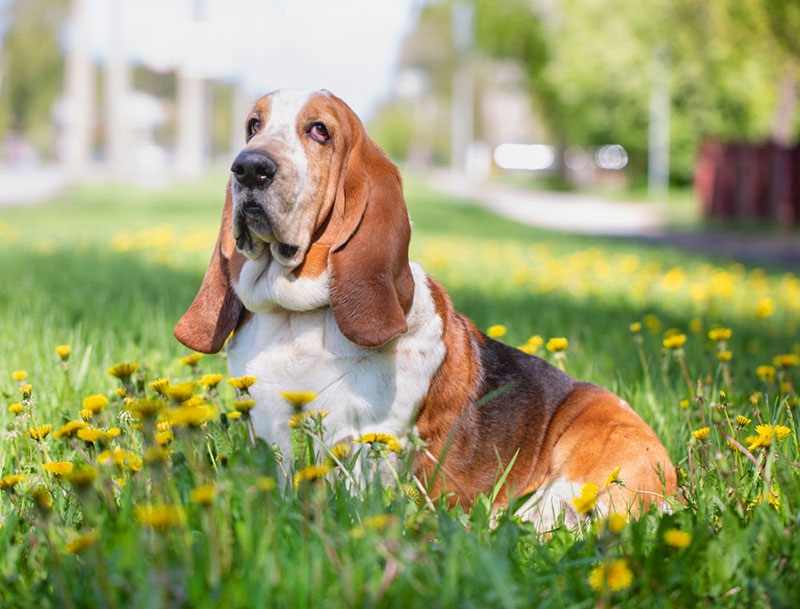
Common Health Issues in Basset Hounds
Basset Hounds are prone to skin and joint diseases, among other health conditions. Like many dog breeds, they often experience obesity, ear infections, and skeletal issues. Let’s explore the causes, symptoms, and ways to treat and prevent these illnesses.
1. Obesity
Obesity is a common health issue in many dog breeds, and Basset Hounds are no exception.
- Causes: Excessive fat and carbohydrate intake, lack of exercise.
- Symptoms: Overweight appearance, sagging belly, reluctance to move.
- Prevention & Treatment:
- Adjust food portions, reducing carbohydrate and fat intake.
- Avoid excessive calorie consumption.
- Increase daily exercise.
2. Hip & Spine Problems
Due to their long body and short legs, Basset Hounds are at a higher risk of joint and spinal issues than other breeds.
- Causes: Genetic body structure, obesity, excessive exercise.
- Symptoms: Limping, lying down frequently, weak hind legs.
- Prevention & Treatment:
- Maintain a strict diet to prevent obesity.
- Avoid high jumps or excessive strain on their spine.
- Supplement with calcium and Omega-3.
- Seek veterinary care if symptoms worsen.
3. Ear Infections
Basset Hounds have long, floppy ears, which makes them highly susceptible to infections.
- Causes:
- Long, droopy ears trap dirt and bacteria.
- Improper ear hygiene.
- Symptoms:
- Foul-smelling ears.
- Pus discharge.
- Frequent scratching of the ears.
- Prevention & Treatment:
- Clean ears regularly using pet-friendly ear solutions.
- Keep ears dry and ventilated.
- If excessive pus or infection occurs, consult a veterinarian immediately.
4. Skin Allergies & Infections
Basset Hounds have thick fur and loose skin, making them prone to skin allergies and infections.
- Causes:
- Humid climate leading to bacterial growth.
- Food or environmental allergies.
- Poor hygiene.
- Symptoms:
- Red, inflamed skin with scaly patches.
- Frequent scratching or rubbing against surfaces.
- Unpleasant odor.
- Prevention & Treatment:
- Bathe them regularly using medicated dog shampoos.
- Control fleas and ticks with appropriate treatments.
- Use veterinarian-recommended medications for severe infections.
Basset Hound Price Guide
Because of their adorable appearance, Basset Hounds are highly sought after. Their price depends on factors like origin, purity, gender, and age. Below is a reference price list:
| Origin | Estimated Price |
|---|---|
| Bred in Vietnam | 4 - 7 million VND |
| Imported from Thailand | 12 - 15 million VND |
| Imported from Europe | Over 100 million VND (including shipping & import fees) |
Gallery of Beautiful Basset Hounds
Here are some adorable pictures of Basset Hounds for you to enjoy!
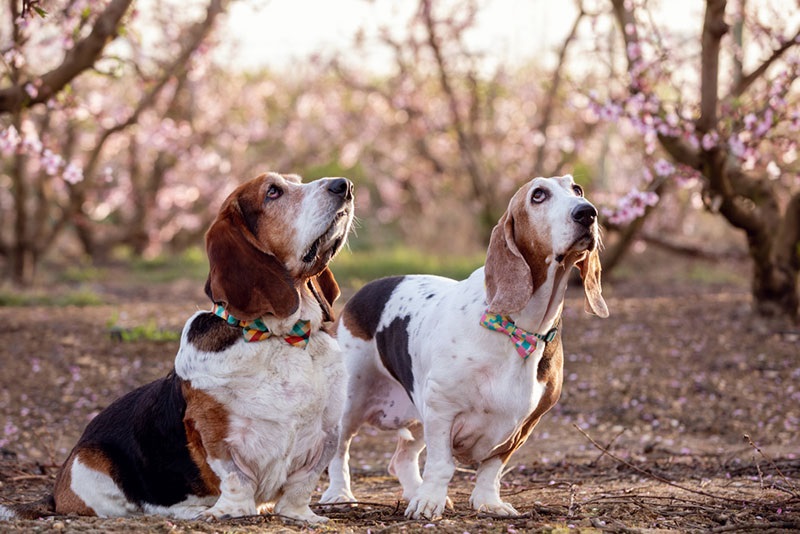
Two Basset Hounds admiring flowers
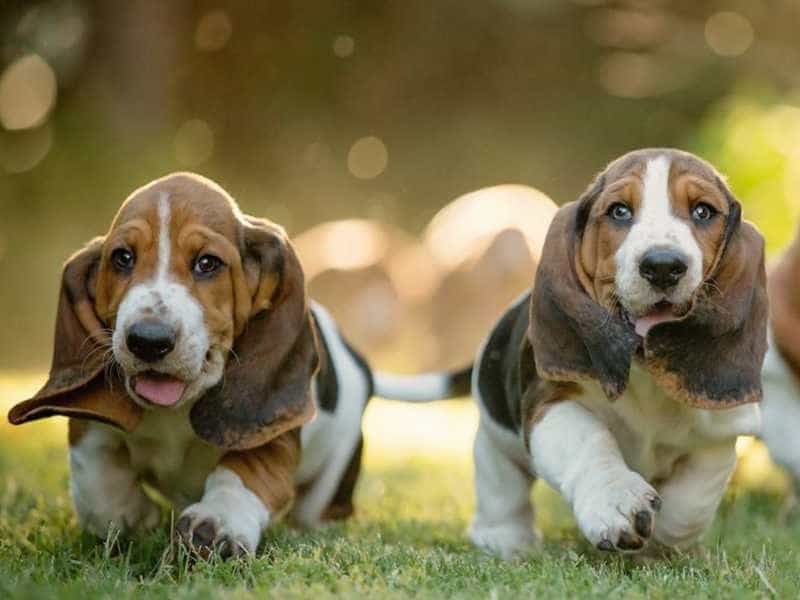
Chó con Basset Hound siêu đáng yêu.
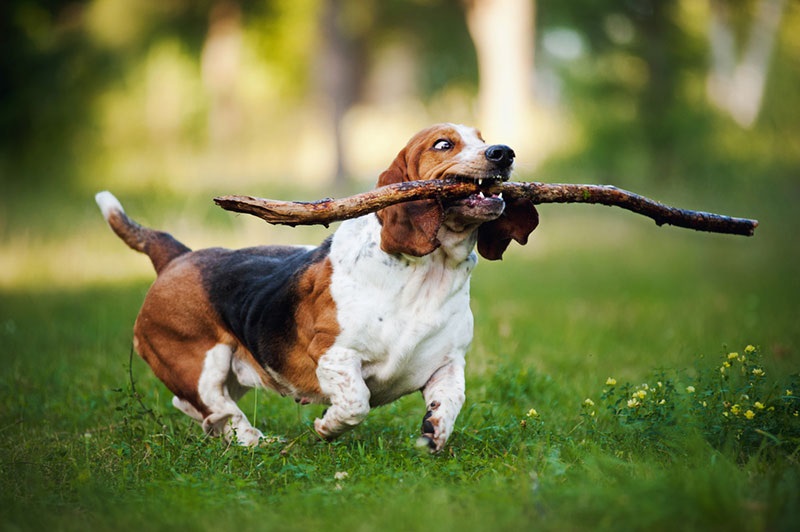
Basset Hound Dog Playing.
In conclusion, through this article, dogbreed.wiki has shared everything you need to know about the Basset Hound, an incredibly adorable and intelligent long-eared hunting dog from France. We hope that this information helps you gain a deeper understanding of this wonderful breed.
Don't forget to visit our Blog section to explore more fascinating articles about different dog breeds

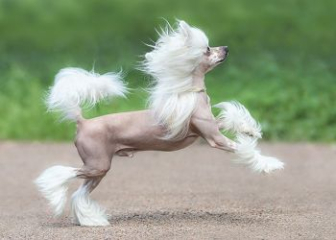
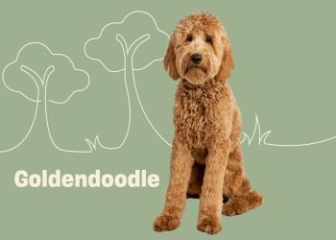
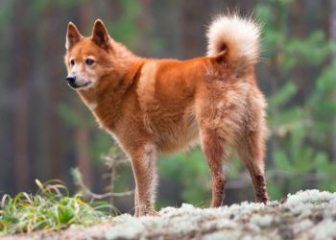

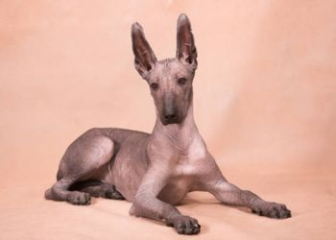
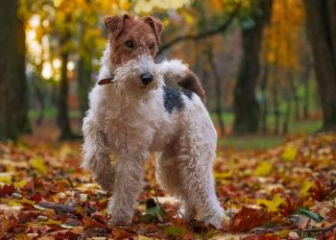


_350x250.jpg)

